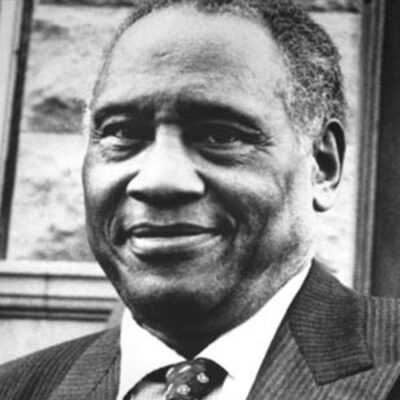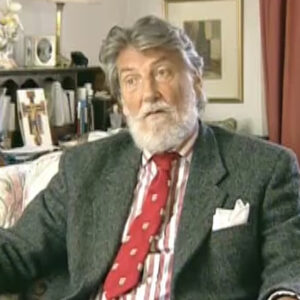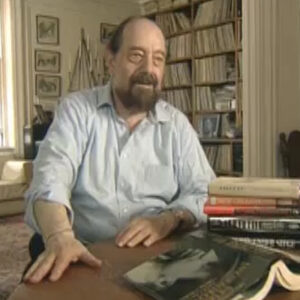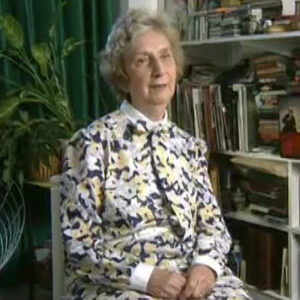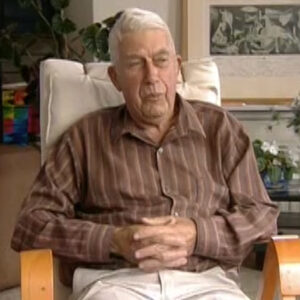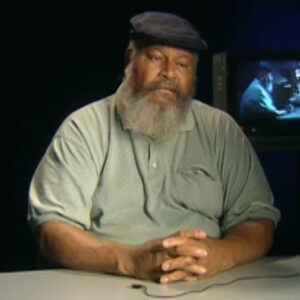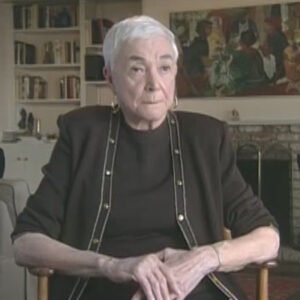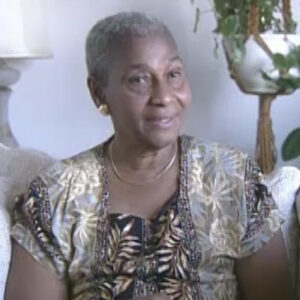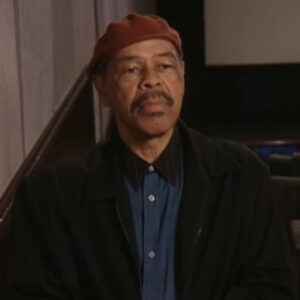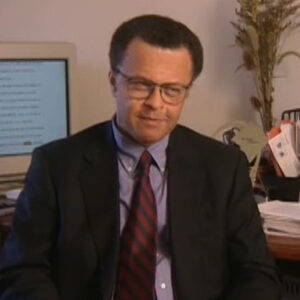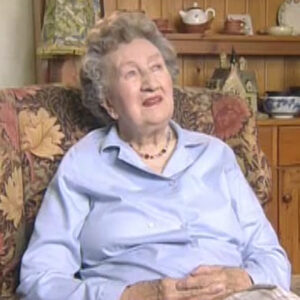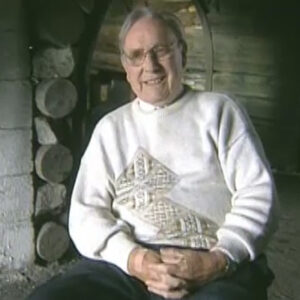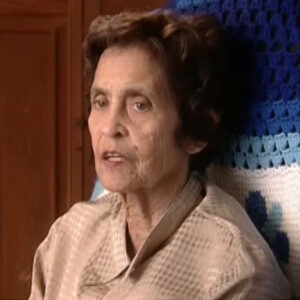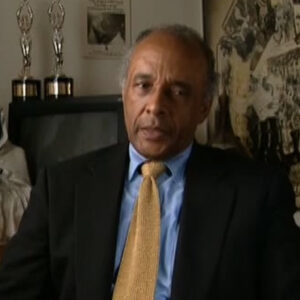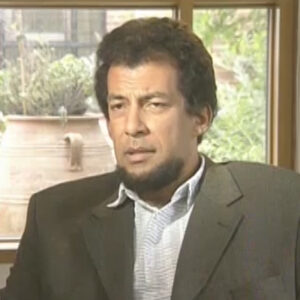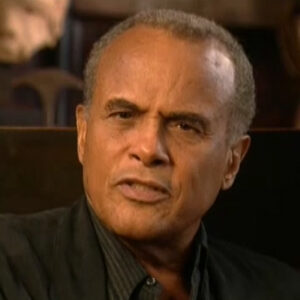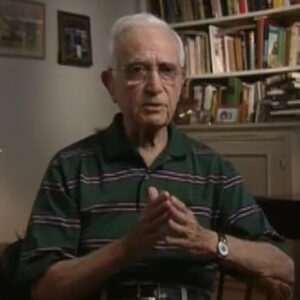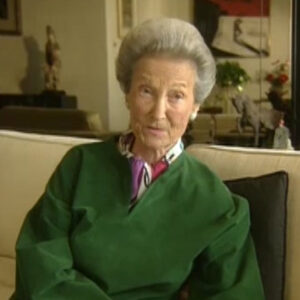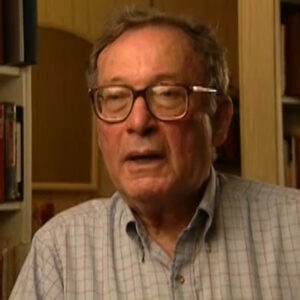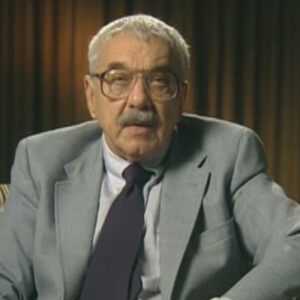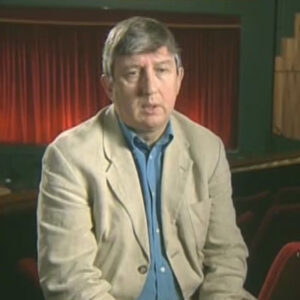Speaker It was purely sort of a limited kind of perspective here for us, because there were not many of us here, not many and those who came looking for education, not many people worked in 1948 when they had the influx of the Empire Windrush. But prior to that, it was still a post-war Britain which had was looking around repairing what was going on here. And many of us hadn’t got through. Many people hadn’t come from the Caribbean here, you see. So because an early one was Winifred Atwell and people like that was a lot of racism as well in the early days. But we believe it was an undercurrent here, but didn’t come out openly because the British are great diplomats. You know, they don’t tell you exactly what they mean street off and they’re very polite. So that can hide a multitude of sins. I’m telling you, they don’t shout and scream very easily that they know how to handle people. So for a long time, you can be fooled, you know, by good manners. In the meantime, the rug is being pulled slowly and carefully and from under your feet. You’re going to fall on your face, but you don’t know it yet, you know what I mean?
Speaker I said it’s going to be a good conversation. I would say, okay, yeah.
Speaker It’s well, it’s this it’s getting hotter and hotter.
Speaker I know it don’t was called a long figure before he came here because he he was, I think, in a memory of all people in the arts and zuheir both British and black and African. He was known my husband was a South African. My my second husband, Gemology, they knew about him in apartheid South Africa, goes to show they knew about this man because we had so few role models. Mandela was locked up. He was locked up for so long. And we were looking for people who we could admire who were in the front line, who were standing up for what we believed in, who are opposing what we didn’t like as well, which Paul represented. I don’t know if you knew how far flung his influence was to these areas. You know, like Kenyatta, you know, was here and Tom Boyan were Dinga everybody. They were in the struggle for African independence. Right. We for the Caribbean support, influence for all the people fighting for rights, human rights and, you know, representation. He fitted into it like a glove. He came straight into that picture for us.
Speaker Let’s go for a second. OK, so now tell me what you were doing when the first time you met. What were your impressions? What was my what what were you doing in terms of your career?
Speaker And I I had arrived from the Caribbean, newly married to Edrick, who already knew Paul and had been in touch with him, associated with his music, and was the only black singer in England singing spirituals and gospel or not. You know, just tell me about Africa so I can then go into it. Yes, yes. Edric was here established when I got here in 48. He’d been here for three or four years and post-war Britain had its arms wide open and showing goodwill towards all mankind, including black mankind as we were. And they were trying to show, as I say, goodwill and so on. So he fell into that. He went into that. I’m so sorry. I know he went into that situation and he was taken up because he had all that folk song, gospel and so on that we hadn’t heard much of here during the war. And he was a reflection of what Paul was doing in America, all that gospel. I knew all that folk I knew. I got to know because he rehearsed at home, you know, and and he also had been in touch with Paul. He had kept recordings. And so in Trinidad, down in his little village in Meerut, he had got all that thing. So when he got to England, he kept on, you know, reflecting that. And I came along and I fell into the mould. You know, I got with him and I heard all about this. I knew about Paul in Trinidad, too. I was with a famous dancer called Beryl McBirney, who founded a little Caribbean thriller that was a personal friend of Paul’s. You know, Paul went to Trinidad and was lionized there. And when people couldn’t pay, he went into the Woodforde Square and let him have it in a big way, which was wonderful. So Trinidad people were also in that tiny island were aware of him.
Speaker Well, we are people now who are in England with your husband. Yeah. How did you meet Paul? What were your impressions?
Speaker Well, Edric had arranged I didn’t know how it was done to meet Paul at at the station, the railway station when he arrived on his way in transit to France. And I was with him and Paul came to us. He was no entourage. His wife was not there, nobody else. Just Paul himself and Edric. And he brought him to our home. We lived in a flat in Lancaster Gate. And he came and he said that was part of the family almost. You know, they were talking these two men. And I was listening. Of course, I wasn’t brave enough to intervene and say I was listening and he was just big, big. Everyone’s was a tall man, about six foot one or two with Paul was a giant. And I kept looking up to him. You know, I found him quite amazing, a bit like Mandela. And I was very tall, too. And when you with these men, they’re big in a lot of ways.
Speaker You know who he was and the Paul’s presence. And they wouldn’t have any effect on the career of it, did it?
Speaker Did, because Paul was already going to win straight into France and into that barrage with got his passport removed and all that anti American stuff came up and he sort of you know, he was now became an activist only and his career was forgotten. And Edric was singing his repertoire, talking about him on programmes like, you know, Housewife’s Choice and that sort of thing. And I actually remember hearing people say, you know, could you talk, talk, talk show, talk back? And people were saying, we have broken all Robson’s records. That man, you know, they built up an enormous antipathy to him in this country here in England, which was which were great admirers of his, you know, great admirers. But the Cold War was beginning to freeze as well as the Cold War was really on. And it hit right at the root of what was going on. So Edrick, who he never lost his contact or his belief in what Paul was doing and in his music, of course, his love of his music and of the man, you know, his admiration. So he kept on, but he felt it. We felt it. We felt programs disappearing and opportunities slipping away. And then, you know, there was the erm the opera here, which now we have you on a peak movie in America. We haven’t yet here. We are working at it, but everyone is watching aminopterin idea. And what is good enough. No chance. No we never crossed over.
Speaker Why did, why did opportunities disappear. Because Paul Robeson wanted to see one lives.
Speaker Oh well, I think I think the Western press, when they go for you, when when there’s a killing, everything in its way is wiped out. I mean, literally, we knew there was a total attack which provided the whole of the entertainment industry that he was involved in, that it was in. And the whole question of. Oh, Nick. Attitude and what was happening, and also we were fighting in the colonial period as well. We wanted to get liberated in the Caribbean, you know, and it all tied up, tied in together. And we were roped into that thing that was going on in America, which we didn’t know much about. I must tell you, we knew about lynchings and we knew about the Ku Klux. We all knew about it and feared it very much. But we hadn’t experienced that here at all.
Speaker And it intensified when Paul was here.
Speaker Absolutely it did. We people were grasping for, shall I say, I said role models. I mean, heroes. We wanted people who we felt mattered in the as activists, you know, which he was.
Speaker And I mean, Kuruma was fighting for, you know, for Fergana Kenyata, for, you know, in Kenya and Tomoya, all of them were running in and out of England. Everybody was run in and out of England trying to get rights restored. You know, and at this time, I think Paul came here to time. The British people loved him, really, people in the arts, people who believe in inartistic Maritime’s who never lost caring for him and the people that Stratford-Upon-Avon they tried very hard to get him to come and try to help him to get out when he was incarcerated in the way that he was in America. And Tony Richardson and people like that who wanted to bring him here to Stratford-Upon-Avon, they they worked at it. The people who worked at it, not only the miners. I’m not what people, general public in England try to help.
Speaker They felt it was unfair, you know, to remove him, that you see the forced performance.
Speaker Absolutely. Because Edric got a chance if he got an opportunity, which maybe he wouldn’t have had ordinarily. But when Paul could not come here in 1958, Edric was cast by Tony Richardson to play in Parallelize to play play the narrator, and they brought some stuff for you to look at. And I went to Stratford for the first time. Stratford-Upon-Avon and Edric played a part. They were waiting for Paul as well. So he got a chance in that whole thing of Paul again, in that image and likeness of it wasn’t just that. It was they were going to give a black man a chance to appear at the Mecca of the arts, Stratford-Upon-Avon. So Edric was the first first to go there because of Paul not going in when the next year. So we went to see him, of course, did so.
Speaker So so.
Speaker So you went to you went to Stratford-Upon-Avon when Edric went there the year before 58 and he made it put his markers down. You did very well there with Tony Richardson, who is, you know, Tony Richardson. Vanessa Redgrave team. I should call him. You would read Father the Richardson girl’s father, shall I say, Julie and the other. So Tony was a young, aspiring sort of director with me, the Royal Court Theatre, Rex Harrison and all those people and every one of that team as well. So they were also pushing to try to get a representation from the black side of people living in this country. We hadn’t really had that kind of opportunity, you see. So we went to Stratford when Paula came. Now, Paula been. He showed the signs of the pressure he’d been under, very tired, gained weight, he was slower and he was quieter. I think he had a beating you would see, in a way, emotionally and otherwise, and a shock, I suppose, to see that everything could be just removed like like that or your achievements wiped out. You know, it’s hard to understand it, but he he probably found it hard himself to accommodate it, you know, because when you’re fighting for the rights of your people, the world today talks about human rights and accommodating it and UN and all that stuff. But I think in those cities, McCarthy was the man doing a really good job and everybody. So Paul fell into that. We lost him for so many years because of that.
Speaker Do you go backstage and talk to.
Speaker Of course. Yes, yes. Yes. Because, I mean, I told you about us having talked to him before and him having taken every cabin, had that lease that was created by his absence. In a way, yes. Yes. We went back and talked with him. But as I said, he was he was a sad man. He wasn’t I think he was already getting ill. And I said, that’s my impression. And very tired and slow down. I mean, he was still been lionized but was a different person. He wasn’t the same person, you know, that we we knew wasn’t so alive and vibrant. I would have thought he played it in a more different differently, I think, to what we saw him playing it in American film. You know, when they film those stage shows that he did in America, Otello. I mean, did you ever see him perform single concert in when I heard him one or two things in St Pancras and so on in town here when he passed through and when he broadcast, of course. But I didn’t have him personally. No, no. Not personally. Yes. Yes.
Speaker When he came back, what was the he told me the first time he came back and when you started, but what was the state of race relations, let’s say 50, 1960, when he came back? But what was the state of black people in Britain?
Speaker Yeah, we were still we were still suffering because we’d had the backlash of what had happened to him. People got much more careful about what he said, what he did. They were fearful of their their future in England. People were actually aware of of the dangers of commitment. Right. And those of us who were committed to this struggle, as we call it, the struggle for people’s rights and human rights. And God knows what we were really intellectually we had to decide on bread and water. We decided we could do without. And if you could do without, you could hold the strain, you know, and that went on for a long time. As I say, there was a lot of fearfulness. It came across the Atlantic, the fear of what had happened to Paul, if he was so big and he could wipe him out. I mean, there wasn’t any other no chance for us. But Eric was brave. He was a kind of a brave guy. He had come from a very simple, poor background. And he had fought his way up to an all time fighter.
Speaker You know, I can see that that was my question. And if I was living here and heard about Paul and then saw him. Ten, fifteen, fifty. Nine sixty the.
Speaker Shake it, shake it, that’s right, we will, we will. And although Claudio Jones, Claudia, had been extradited from America to here, you know, because she was a Trinny Trinidadian woman and she came and immediately got into setting up the U.S. embassy and so on. But she was a very clever, what shall I call it, cheap. She had charisma. She drew very amazing functional people together, people who never really agreed and who had their own stance and who either suppose, you know, whatever. She put everybody together. There was no people didn’t hide away from Claudia because she gave a message of unity, get together, togetherness. And she also said to us, look, if you want a chance at all, you have to unite and get, you know, get the message over. So she had to where she said she had a lot of people and she was moving along amongst us. And she had this woman’s organization told about four African and black women which operated from the West African Student Center in Otis Court, where we had all these days for women and celebrating women was great stuff, you know, and that she got silver and always invited groups of people to meet her, including myself. Yeah. Tell me about this. You met her. And of course, she was she was just a lovely, qualified, evil woman. We were glad to know we had somebody like that in his camp. But that was the person that was with Paul because, I mean, she was intelligent. She knew the score. She understood what it was all about. And those of us here who were, you know, struggling with, as I say, for independence and for recognition in this country, we admired her for holding the string, for holding on right in the middle of all of that. I know, as you asked me a question earlier about admirers of Paul on the female side when I got to know about that, not about Paul, so much about my own husband, Edric. I mean, there were so many admirers, so many people that fawned on them and so on. Very difficult to separate that from the person themselves and particularly people of the standing of Paul and of how everybody came here. It was very difficult because they didn’t even have to respond. They were just open target. I think he was, too. I mean, he was quite an amazing person. And let’s see the the elite in England, the white I’m talking about, the British white elite artistic set up here, absorbed him. They loved him, worship him. And, you know, they they embraced him. That’s the thing. And of course, among those embracing, there were women, too, I suppose. I mean, these is as anybody but I mean, it was women doing it. And this happened with Africa. I didn’t understand it. It was it’s very difficult to take as a wife.
Speaker What do you think it is? I mean, what do I think it was? Let’s say you see and then you see your husband, Paul, and you see these women going after him. What’s what will be your ex? What do you think?
Speaker I mean, this type of being angry then when I was naive, I would have said, my God, what a shame. Oh, I worked so hard with him and so on. And I’ve stood by him. There you are. But as you get more mature and I’m sure she did mature, you realize it’s part of the game. It’s PR promotion, it’s public, it’s its audience. It’s all that crazy business that we we get to know about when we are married to such people.
Speaker Yeah, but he he, uh, he he was pretty active. I mean, it’s not like he just laid back and he came back to do it for the actor. Right. So. Well yeah.
Speaker Well I am not a I’m not a witness of that. I just knew you hear, you hear things. But basically it’s very hard not to respond to embraces and to love. Let us see if you want to call it love. But I think that admiration and all that much go to some part. I think your head, but it can go to other parts. I think really, as Heineken does, it can, you know, warm the parts and other things, don’t, you know, don’t warm.
Speaker But it would be very difficult, I think, for an artist not to to love being admired, not to like their fans, not to want not to want it, and to be isolated, very difficult. And for Paul, too, I mean, he was a black man coming out of America where you had all that divisiveness, white and black, and he had this whole white hierarchy in this country just roll over him. I mean, they were, you know, all the famous famous actresses and so just loved him and was very hard, I would have thought, to resist it. That’s very mature of you. After years and years of trial, I might tell you.
Speaker OK, did Paul have any effect on you in terms of your thinking and your, you know, the struggle? Did he have any effect on you?
Speaker Oh, yes. And me personally, I came out of out of a kind of situation in Trinidad where I was representing the youth movement in in Chile, Western the National Party and so on. Before I left, I was on all the platforms with all these grand gentlemen. I was talking for the youth and I was trying to make them remember our heroes doing radio broadcasts at quite a young age in Trinidad. And I was imbued with that feeling of nationalism, of of the struggle of Irish identity. I mean, my grandfather, my father’s my mother’s father’s father was a Portuguese emigre, but his mother was a daughter of a slave who had been freed and had come down to the Caribbean. And she was educated and saw her children educated. So we knew we had a close touch. Funny enough, those islands to America, what had happened in America with slavery, but the persecution, what happened to people there? We didn’t experience that, but we had a backlash. But I see the reflection of it in our society. And we knew we didn’t want that for ourselves. We didn’t want it. We wanted a free nation. You know what you call it. We have a seeing for every race and creed and race, a common place that everybody has rights in our society, everybody. And they can play their part. So I was brought up in that.
Speaker But how did Paul affect you?
Speaker Well, Paul was as I say, we didn’t have many people to admire. We didn’t have many black people.
Speaker She told me he was his time and not only as an artist, his commitment to the struggle to the liberation of the black people in America. But he couldn’t because when he sang those songs, they were not like an abstract song. Somebody wrote, you know, everything came home as if he was talking to you about what was happening to people suffering and all that. And of course, I had heard Strange Fruit Sung My Blue Lives here in London, came and did his piece and sung it. And we will we were carried away by it because we knew nothing about it. We didn’t know we knew about Jesus on the cross. That was where we started. But human beings crucified. We were not used to that. What?
Speaker I took you off. What? OK. And so you’ve been on the front line for a long time. Yes, yes. If you could talk to Paul now, you are like, what would you say to him about leaving the states that you think that you could make me out of that battle from your point of view?
Speaker What do you think? From my point of view, having matured in this country, in Europe and England and knowing a bit about the Cold War and having experienced all the effects of it, I would say I know. Yeah, having lived here, I said right under the Cold War on the wall and all that right next door.
Speaker Yeah, just just you can just think about what would you say to him?
Speaker Yeah, I’m thinking about it. Yeah, that Paul, I would have said to him, you say they say you don’t bite the hand that feeds you. I don’t know why you were. So I’m never carried away by white people. You see, I don’t know why he was that white people are so snubbed him in America and there was such a division that it meant something to him. My own mother was half white, you see, and my father was black. And we in the Caribbean we used to color. So I didn’t quite understand how it got so took him over entirely. The Russian thing going over to to the east.
Speaker Let us see, because I would have thought that even my limited experience of the East was we heard about Gulag long time. We knew here that there were other areas in Russia other than the front of goodwill to all men, lyonnaise and all bouquets, flowers and all that. And that he I’m sure that he was what shall I call it? I’d like to think that he was really exposed in a way to to being taken over. In a sense, I felt that used him that he was used or exploited. But I think on reflection, I would think in that situation in a world that it was when I saw him with Khrushchev on them sitting down there in wherever it was, you know, that it was sitting down together at a holiday resort. I thought, oh, my dear, how to me it was.
Speaker It had moved beyond a certain level. He was being, what is the word, lionised and he was also being what is the word I’m so sorry to stop that thing going on. Well, I think of the word. I think he was being seduced.
Speaker OK, so let’s talk about when you saw him.
Speaker When I saw him, you know, the famous place where they all went for holidays in Russia. You know all of them, right? I mean, that was wonderful. Maybe he thought, God, yeah, really.
Speaker OK, so so is his relationship to Russia through and critiquing things that he might have done better.
Speaker What do you think the problem not only done better, I think he was what should I call him? He had raw nerves. He was exposed to wanting love. I think I’m using a very personal expression now, wanting to be appreciated, to be loved, which they did it in in large volumes. He got a lot of that. And the book is I’m Not a prisoner war book. As you see myself, I get a little nervous about it. I like to know why I’m getting it and all that long before I receive it. But I mean, he was getting away from America and all the terrible things that had happened to his family himself. It wasn’t in our memory what he had gone through. It was his memory and his troubles at Rutgers and whatever. So that that was a wonderful experience for him, except for the fact he was put in his put into a really deep hole. We thought he was trapped into something, I think, which he hadn’t assessed at all. When you think about his education, his brain, his wit, I think all that was damaged by persecution. I think you change when you’ve been hurt a lot, when you’ve been battered, you change whatever what you have is damaged by by the hurt you suffer.
Speaker And I think Paul was just open to.
Speaker Bing, bing, bing, after being taken up by them, I think he was taken up by them and all that, as I say, you don’t bite the hand that feeds you, do you?
Speaker He was getting it all, but he he did receive a lot. So why do you think he then kind of rejected it? Are you saying that he rejected it?
Speaker I just saying you’re saying that that he rejected love that rejected. No, I’m speaking about asking me about what he did politically across the great divide of the Cold War. I mean, when you come out of McCarthyism, I suppose you could kiss anybody, the devil. You could really become friends with great forces that hurt you and you want to get away from what hurt you before. So in a sense, if you think of Paul, you have to see him in perspective. He was a damaged man from over your side and he was going into the arms of the embrace of very clever people, very clever people.
Speaker So essentially, you think he was used by the Soviets.
Speaker He allowed himself to do that, essentially.
Speaker Not exactly, not exactly. I’m trying to assess what you’re seeing that I’m seeing, right? Not exactly. I was saying that he was embraced by them. Were you saddened and used that? I said embraced and lionized and all that. And that embrace turned out to be in world affairs, to be against it was either for or against. It was a four again situation. So whatever you’re doing, if it’s if it reflects adversely on whoever you’re with, it’s negative. It’s against really. And literally, that’s what happened. He wasn’t I mean, artist that I know, having been married to work for and lived with for years, I don’t think they are session. And we have all of these personal things in their lives all the time.
Speaker Basically, as a performer and an artist, you you’re doing something else. You present in some kind of self to the world. You’re living through your art. You’re not all the time thinking of all these other things that became of such great importance in America. I talked to several of your film directors and all the others we’ve read about and who had to tell on whom and who did what and what and who loved, who were who, Krushchev and so forth. So Paul wasn’t outside of that. I mean, the thing is, he was such a larger than life figure and was so important to our world, our world. I mean, the black world, the people of color in the world that you you don’t you didn’t know where to stand. I mean, everybody abhorred McCarthyism later on. But when it was happening, it took over, didn’t it? We knew about it. You didn’t have that here.
Speaker So say so if you had know if you had been able to be here at the time, you would have said, pull out those names. Just back off. Right out.
Speaker I said, remember, there’s gulag behind there.
Speaker There’s there are other things happening in these countries, like the ones that hurt you. They hurt in some of too, that there’s no straightforward situation in world politics. Everybody doing their own dirty washing somewhere. You might know about it. But I don’t think as an artist, his consciousness would have gone that far. I think he would have been aware of it. I was aware of a lot of things Edric wasn’t thinking about when he was working, you know, films and stuff like that and being left out and know building and all that stuff. That was my department. He Aatish he’s performing even thinking about that.
Speaker Yes, he knew all this.
Speaker And you’re talking about I think she must have been aware as a I think she must have been aware she was not an unintelligence was an educated, intelligent woman and I’m sure loving her husband, too, and being there to him. She must have seen all the dangers that were around. She must have been aware. You know, one is if one if one has an iota of sense, you know, that they’re trapped and you like to pull them out of it, you can’t always do it. You know, you can’t always do it.
Speaker So in the long run, in the long run, you know, Paul Rose is dead. He was forgotten and now he’s coming back. What do you think his legacy is? What do you think history will say about what people say about it now? What do you think more important? What do you say about our church?
Speaker Very important. The commitment he made. We we don’t commit easily. You know, we are frightened people. We fear repercussions and we fear being put down. But he stood up for what he believed in. We have to learn about that. We have to learn to stand up for what we believe in and to to, you know, mobilize if we see something really shocking happening in our community.
Speaker And I mean, I’m very involved with South Africa now, I tell you, because I’m married to South African and there was apartheid and all that.
Speaker Yes. Yeah. Let’s hear what you think the latest is and I what you think about what started the noise. Yes, yes, of course.
Speaker Let’s find out what his legacy is, stand up and be counted for what you believe in, that that Irish has been oppressed for a long time. And this is we’re coming up to the millennium, 200 years when Christ was doing his thing on Earth. And we’re talking about love each other and respect and all that stuff. But basically, we need committed people who will move the struggle forward, move the matter of identity, of being in communion with other people, of the acceptance of us at every level in our society. I think Paul wanted that and he wants it once or twice, I would think, because the American media was so powerful that, yes, it’s gone as well that you’re going to stop.
Speaker Yeah, OK, here we go, all. I’m sorry. I you know, now it’s OK.
Speaker As I say, the legacy is stand up, stand up for what you believe in. Stand up and say, don’t just give in to just bow down. We finish barwin we now seen Mashadi done which Dr Williams you know our prime minister in Trinidad said start off with Marcelina of the legacy of the legacy.
Speaker Yeah. Yeah ok.
Speaker The legacy that Paul left us was commitment to the struggle, standing up for what you believed in, holding together as one who will not divide. And we’ve had divisive things for years.
Speaker And he was left in the lurch, as we might see for a long, long time by his own people. And we out here, we couldn’t understand it. But I suppose on examination you can feel the fears, people losing their rights, their power, their position in society because of association with whoever. And Paul’s legacy is that he was a great artist who was deprived of performance recording companies, banning records, all because he was a cold or I mean, I’m amazed people are kissing Mr. Yeltsin right now in America. Everybody’s getting kissed and hugged. It’s amazing because now that is that period is past to which when he was crucified. So now you can come up into the light because all those enemies are our friends. Berlin Wall gone.
Speaker These guys really think that all the words were. Yes, absolutely.
Speaker Well, I mean, some of the when I say my own, I shouldn’t see it as a generalization. I would think that several people were mobilized by the media to, uh, not just attack, but to comment on his position, who were prominent in media and in in American in the American state itself, all of America and the world.
Speaker It’s a picture of England and so on. So I think he was and that’s always a great grief to us. We don’t mind when the other guy kicks us, we say, you know, it’s when your own lies bite you. You know that expression, that’s a Caribbean expression. When your own life is terrible, it’s bad enough.
Speaker But the one people you could count on with his own people when he didn’t have any, when he couldn’t get out of the country, you went to black churches, that’s all.
Speaker Oh, yes. I should see. That’s why I said with reservation, I knew the churches. His brother had a church, all the black churches. We have to always say that that that religious thing in America was great and a great help to him. I think he was a man of great spirituality, too, wasn’t he? He come out of that background and no matter what is he about, I don’t know how you married a communist business with your church business, but we have always taught him to be separate, that God and religion and the celebration of Christianity has been great in the black churches in America.
Speaker And I think they stood for him. I agree with you. I’m not going to make a generalization of that type. But the thing that Keema that he sent across the ocean, we’re not very friendly. They were they picked hand-pick the ones that were you that were used in that way. I would see I wouldn’t say all American black people, but we find it hard here, too. We find it hard to get the concourse to stand together in an emergency. They still have a lot of fears for employment, for the economy, for status. All these things have mitigated against the unification of our people in in what we want. But it’s changed a lot. It’s got better a lot more people who are aware of how important it is to stand together.
Speaker Did your husband and Paul ever have any plans to work together or did they finally put that together? They talked about what they wanted.
Speaker I think they did, because Edric wanted very, very much to to get into the opera scene and to sing and to and he was acting, too, just like Paul did all those African films he was in, in chiefs, African chiefs and whatever, like Paul did. And he has a whole list of heaven and all of those things. And he played with these films in England, was very interested in Africa.
Speaker You know, what do you what did Paul what did your husband say to you about what did he say?
Speaker What do you say about troops and to me, what he said, I mean, he’s a great man who I admire and who I would like to emulate. And I think that as many people as I meet who don’t understand about him, I don’t know. I will tell him I would give them the message about him, who he is, because that’s how I got. And it was when I was told by Edric about him in the first instance and then I got to know in Trinidad and so on about him. So Edric was committed to what Paul stood for artistically. We didn’t get into that that Cold War torn. You know, we were in the colonial office here. We were trying to get Britain to give us our independence. So that never touched us. When you get enough, he wasn’t involved with that side of Paul’s career. We weren’t here in England. He have crossover. You know, he flew over into the other world.
Speaker You know, there was a play that there was a play that Edgett replaced. All right. Was play.
Speaker The way America is Stratford, you mean Stratford-Upon-Avon, it was preclears, it was called famous about a famous celebrity narrator in Stratford with Tony Richardson. That’s the play that Richardson was trying to bring out the campaign for some time to get him out and that they had hoped to get him in that year, 58. And he didn’t you know, they had a lot of trouble. So Edric went in and did that. And then the next year by then, they had succeeded.

